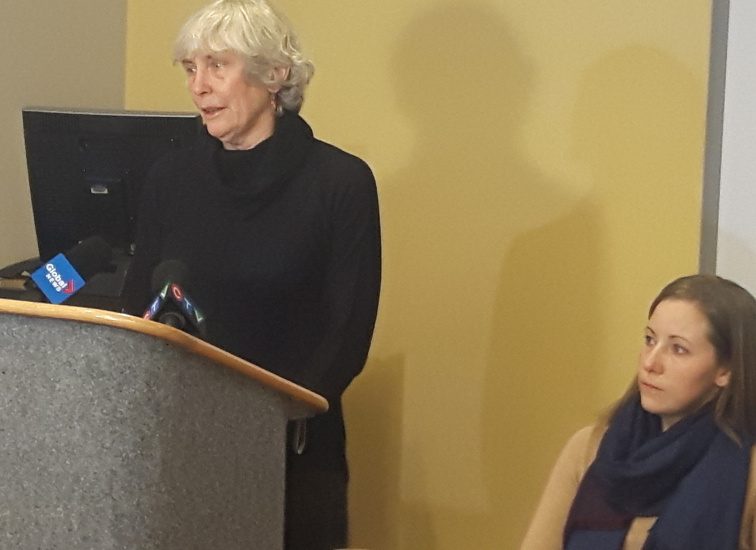KJIPUKTUK (Halifax) – Results of an online qualitative survey suggest that many Nova Scotia teachers continue to care deeply about their students while battling stress, disillusionment, exhaustion and even burnout.

For this teachers blame a Liberal government that they feel isn’t listening and isn’t addressing the real issues they contend with on a daily basis.
The report, Teachers’ voices, an independent survey of Nova Scotia’s teachers, was launched this morning at a press conference at the NDP Caucus office in downtown Halifax.
It was compiled by Educators for Social Justice- Nova Scotia (ESJ-NS), a group of educators and allies who advocate for greater social justice in our schools and communities.
The survey asked just a few simple questions: what works, and what isn’t working in your classroom and in your school; and what is it that continues to make you want to teach, no matter how difficult the circumstances?
Some 300 teachers responded from all across the province. Responses were frequently lengthy and touched upon a broad variety of topics, too many to reflect in this brief news report.
Significantly ESJ-NS asked the questions in early 2018, after the Liberal government imposed a contract through Bill 75, and after the Glaze report was published.
“I feel defeated. I’ve always been an optimist. I have always felt that if people come together for the good of the good, everything will work out in the end. Last year robbed that belief from me. I’m struggling to get it back.”
From the report/
“Two themes can be distilled from these responses,” said Dr. Pamela Rogers, a teacher and academic who co-authored the report.
“First, the need for respect for teachers and educators in the province. Teachers are demoralized, and many spoke of thinking of leaving, or are actually leaving the profession.”
Second is the need for greater accountability and transparency in the provincial government, and to properly consult with teachers `and other experts.”
“We found most teachers do love what they are doing. But this is fast eroding. In an era of looming countrywide teaching shortages the government should be thinking about how to retain teachers, or we will shortly be in the same position as the medical profession,” said Molly Hurd, a retired teacher (and sometime Nova Scotia Advocate author).
“First, last and always…it’s the children. The bright ones, the silly ones, the anxious ones, the busy ones. The ones who struggle, and the ones who fly. The ones who never stop talking, and the ones who can’t talk at all. The ones who come home with you, and keep you awake at night as you mull over what the next thing is that you can try to reach them. The paperwork, the policies, the data collection? The pressure from outside interests, the endless meetings? No. When everything else about teaching threatens to crush me, I can still close my door and just be with these amazing children. And that is truly a privilege.”
From the report
“The lightbulb moments of recognition when a concept is clearly understood by a struggling pupil. The creative energy of the children is infectious. It was my life’s passion to teach.”
From the report
In a final chapter the ESJ-NS report authors reflect on the survey results and offer up an action plan of their own.
“While the responses are certainly distressing, they serve as a warning for those in leadership positions, those in government, and for everyday citizens with voting powers to see the depth of the education crisis in Nova Scotia,” the report concludes.
“As a barometer for the health of the system, teacher responses have shown that the system is not well; the abuse teachers have sustained for years is no longer hidden, and no longer acceptable.”
Follow Educators for Social Justice on Facebook.
See also: “It’s a calling, but it is getting so hard.” Online survey aims to amplify teachers’ voices
With a special thanks to our generous donors who make publication of the Nova Scotia Advocate possible.
Subscribe to the Nova Scotia Advocate weekly digest and never miss an article again. It’s free!



